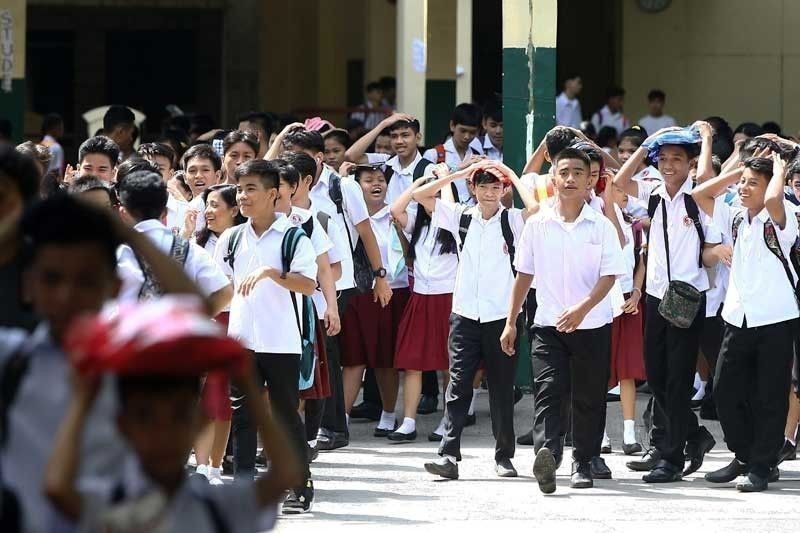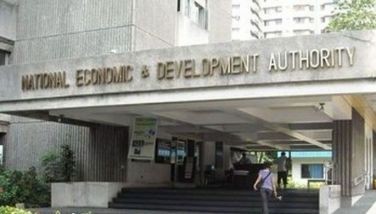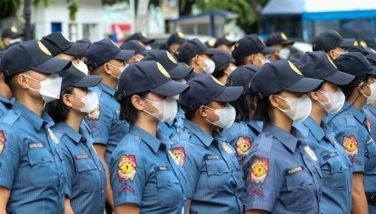Teacher survey finds 'intolerable' summer heat affecting attendance, learning

MANILA, Philippines — Most teachers report that students are struggling to concentrate in class and are not showing up to school due to "intolerable" heat in classrooms, a survey conducted by the country’s largest organization of teachers showed.
According to results of a survey of 11,706 public school teachers from March 24 to 27, most lessons are also held in congested classrooms, posing severe difficulties for students with medical conditions as summer rolls in.
"The condition of classrooms today poses a severe difficulty during the warm season. Students cannot stay still and cannot listen to the lecture … They’re sweaty and tired," said Vladimer Quetua, chairperson of the Alliance of Concerned Teachers, which conducted the survey online.
Most teachers conducting lessons in 'intolerable heat'
Around 67%, or around 7,800 teachers who answered the survey, said that they experienced "intolerable heat" in their classrooms, with the most commonly reported result being students’ difficulty paying attention to lessons (86.6% or 10,140 respondents).
Most schools have been holding face-to-face classes since the start of the school year following Vice President Sara Duterte’s 2022 order requiring all schools to gradually transition to in-person learning. Duterte is concurrently secretary of education.
But Duterte herself and the Department of Education has acknowledged that the country’s most pressing problem is still the shortage of classrooms that can cater to its growing student population. The government needs to build at least 91,000 classrooms to meet the country’s minimum backlog in school facilities, DepEd data from August 2022 showed.
Most teachers who answered the ACT survey (62%) also confirmed that class sizes have returned to pre-pandemic levels with an average of 35-50 students per classroom.
A 2021 aide memoire — a reminder that is not quite a memorandum — released by then Education Undersecretary for Administration Alain Pascua warned that packing classes with 40 to 45 students would result in "minimal to no physical distancing."
Heat making students sick, miss school
Quetua said that "absenteeism is also becoming a more serious problem" during the start of the summer months.
At least two out of five teachers have observed a dip in student attendance due to uncomfortable classroom temperatures, according to the survey.
Specifically, nearly 40% or around 4,600 teachers said they have observed an increase in absent students as an effect of the warmer weather and current classroom conditions.
This was followed by 37% or around 4,300 teachers saying the heat has triggered students with ailments.
According to the teacher-respondents, most of their students also had existing medical conditions (81.5%) with asthma being the most common (53.7%).
Quetua said that students and teachers have complained of headaches, dizziness, and nosebleeding due to the heat, which is made worse by the lack of school health facilities and personnel.
At least 80 students from a school in Laguna were rushed to the hospital on March 24 after they participated in a fire drill under the afternoon heat.
At least 97% of teacher-respondents also said that their classrooms had electric fans, while only a small percentage had air conditioners (0.9%). Majority of classrooms had three or four electric fans (54.5%).
DepEd’s Basic Education Development Plan 2030, its first long-term roadmap for education, stated that it will improve its health services in consideration of the “health impacts of climate change” on students, specifically heat stroke, dehydration and other diseases brought by rising temperatures, among others.
The Philippine Atmospheric, Geophysical and Astronomical Services Administration declared the start of the dry season on March 22, warning the public of the increased risk for dehydration and heat stroke.
Majority or around 80% of the survey respondents hailed from the National Capital Region.
- Latest
- Trending





























